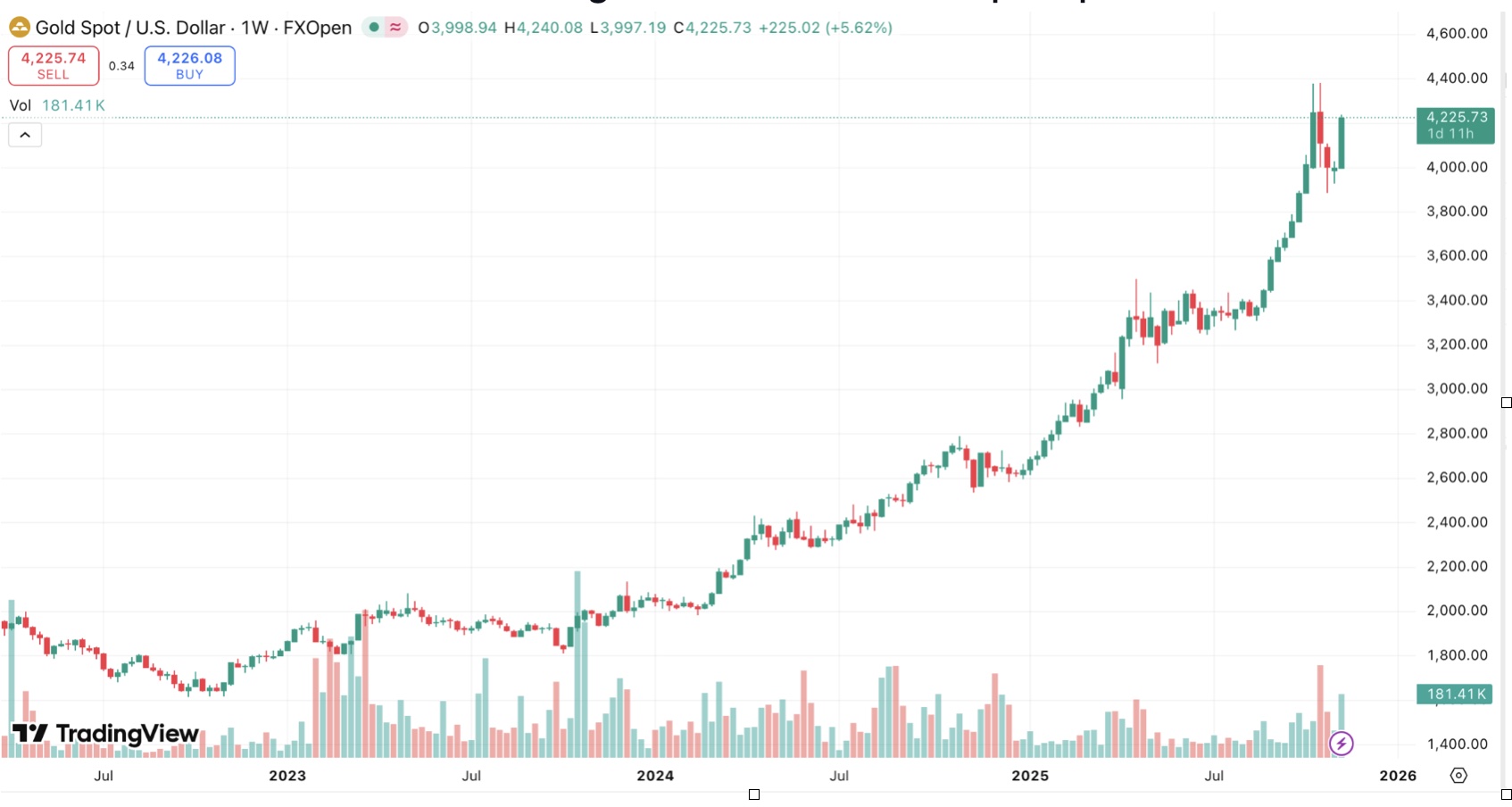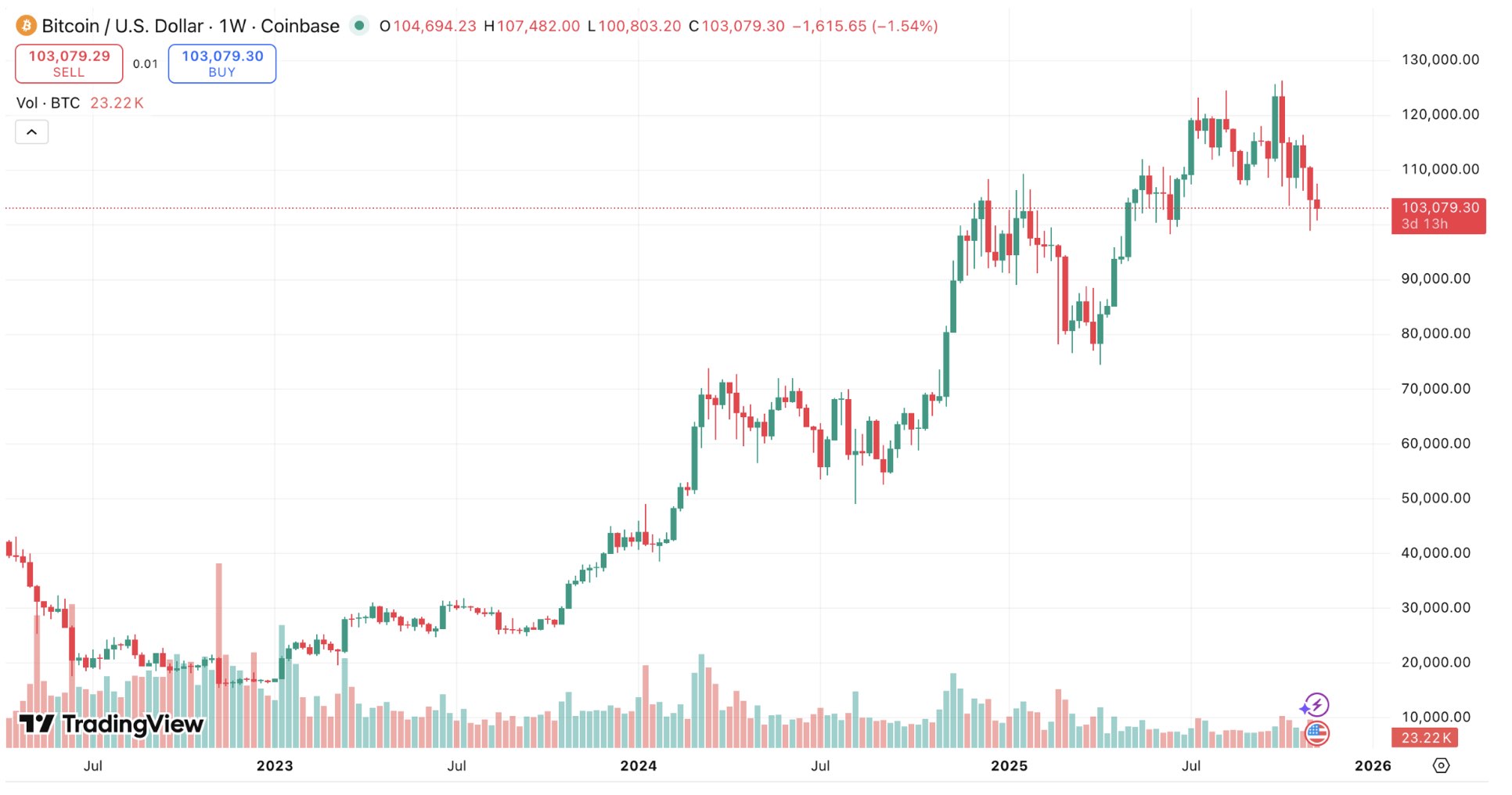When investors are most unsure, they reach for assets that retain their value during market turmoil. For institutional and individual investors in Africa, including Nigeria, gold has been the go-to haven for several years.
More recently, Bitcoin has been increasingly touted by its advocates as a digital alternative to gold because of its decentralised architecture, capped supply, and rising international profile. In reality, matters are far more nuanced.
Although Bitcoin certainly constitutes a profoundly important development in the field of digital money, it is not a stable store of value at this time. Instead, its price dynamics more closely resemble those of risk assets, such as major stock indices and speculative technology stocks.
Given the inflation pressures, currency devaluation, and exchange rate instability that encourage diversification beyond traditional financial instruments in Nigeria, the question is: Which asset can reliably preserve wealth? To understand what makes an asset a haven, one needs to be clear on the definition. A true haven preserves purchasing power during crises, maintains demand across economic cycles, and retains liquidity under stress.
Gold has met these criteria time and time again throughout the centuries and across geopolitical events. Bitcoin, in relative contrast, has shown high volatility, strong correlation with global risk sentiment, and rapid speculative inflows and outflows. These characteristics position it closer to a high-risk growth asset than a defensive hedge.
Why Gold Remains the Primary Safe-Haven Asset
Gold has been a store of value for millennia. Its value is independent of any government, central bank, or digital infrastructure, and of any external platform.
The price of gold mainly responds to currency weakness, geopolitical tension, and macroeconomic uncertainty. When inflation grows or currencies lose their purchasing power, gold usually appreciates. This can be clearly seen in Nigeria in recent years, as inflation and a weakening Naira have led to increased domestic demand for gold as a means of capital preservation.

Gold (XAUUSD) 1W chart 13.11.2025/ TradingView
The stability of Gold is not accidental. Deep global liquidity, central bank participation, and sustained demand from industry and jewellery markets all underpin it. These structural characteristics reduce speculative volatility and create price behaviour that, relatively speaking, is smoother during periods of global market stress.
Read also: Expert says Bitcoin poised for rebound if US Federal Reserve cuts rates
Bitcoin Has More With Risk Assets
Bitcoin is often referred to as “digital gold” because of its limited supply and decentralised architecture. However, it behaves more like a high-beta market instrument in terms of price action. When global markets are higher and technology stocks are outperforming, Bitcoin tends to appreciate strongly, while it declines with equity indices when risk sentiment is poor.
For instance, during global risk-off events such as major central bank tightening cycles, Bitcoin has plunged along with stock markets. This is consistent with speculative capital exiting high-volatility assets first when liquidity tightens. A safe-haven asset should behave differently. It should either remain stable or appreciate during market uncertainty, not decline with broader markets.


Bitcoin 1W chart 13.11.2025/ TradingView
Bitcoin’s sensitivity to leverage conditions, liquidity cycles, and risk appetite precludes it from being viewed as a defensive portfolio asset at this time. It remains a speculative growth asset, with its price driven by sentiment, innovation cycles, and capital flows from both retail and institutional traders seeking momentum opportunities.
Nigeria’s Inflation and the Search for Stability
The Nigerian economy has experienced its fair share of runaway inflation, currency turmoil, and foreign-exchange pressure. Against this backdrop, the difference between a speculative asset and a true store of value becomes material. Most Nigerians like Bitcoin because it is accessible, internationally mobile, and free from local currency constraints. Features like these make Bitcoin a valuable alternative for transactions and savings, especially when access to banking is limited or capital controls limit currency movement.
However, the ability to move capital does not translate into its value being preserved. Wealth protection requires stability. Gold provides this stability through centuries of price memory and broad demand. Bitcoin offers mobility and growth potential, but mobility must not be confused with safety.
Complementary Rather Than Substitutive Roles
Gold and Bitcoin do not compete directly; they serve different roles within a portfolio. Gold is a foundational asset for stability, while Bitcoin can be used as a speculative vehicle, diversification tool, or to get exposure to digital innovation, but only as a controlled percentage of one’s capital. For most traders and investors, Bitcoin is an appropriate allocation, balanced by assets that maintain value regardless of global liquidity conditions.
A common framework amongst professional portfolio managers today is to consider gold a core defensive asset and Bitcoin a satellite holding of high conviction, which is sized according to one’s personal risk tolerance.
Stability vs Growth Potential
Gold stores value through stability and resilience in the long term. Bitcoin offers potential growth, but it is highly volatile and sensitive to global risk sentiment. For both investors and traders who want to protect capital while maintaining strategic flexibility in Nigeria, these will make a difference. Understanding the respective role of each asset leads to better portfolio construction and more sustainable financial outcomes.
Bitcoin is a powerful innovation and an important part of modern financial evolution. Gold remains the foundation for wealth preservation. The right balance does not depend on a question of preference but of purpose.
To start using the JustMarkets Trading app, simply register and download it on your Android or iOS device.
Disclaimer: CFDs are complex instruments and carry a high risk of losing money rapidly due to leverage. Ensure you understand how CFDs work and whether you can afford to take the high risk of losing your money. JustMarkets does not provide investment advice or recommendations.








